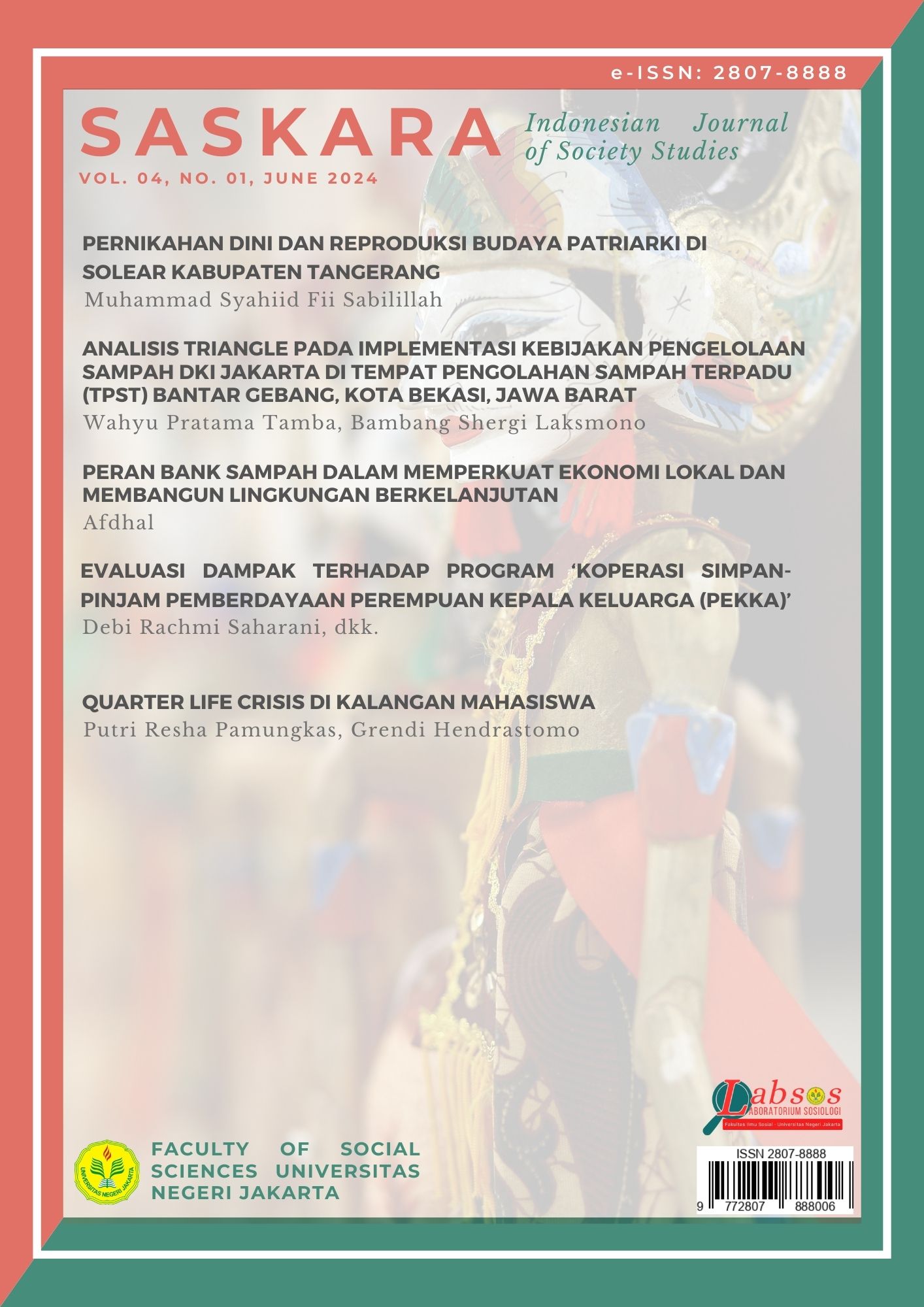Analisis Triangle Pada Implementasi Kebijakan Pengelolaan Sampah DKI Jakarta di Tempat Pengolahan Sampah Terpadu (TPST) Bantargebang, Kota Bekasi, Jawa Barat
DOI:
https://doi.org/10.21009/Saskara.041.02Keywords:
Social Policy, Waste Management, TPST Bantargebang.Abstract
The centralized management of waste from Jakarta at the Bantargebang Integrated Waste Management Site (TPST) in Bekasi City has an impact on the environment and communities in the Bantargebang District. The DKI Jakarta Provincial Government has made local regulations on waste management but has not yet contributed optimally to the quality of life of affected communities. This study aims to analyze the implementation of Jakarta's waste management policy at TPST Bantargebang. The method used is a document study, which examines regional regulations on waste management, using triangle analysis. The results of the content analysis of Jakarta's waste management policy have changed, but it has not been identified between the people of Jakarta and the affected communities. The interaction of the actors is characterized by the synergy of the DKI Jakarta Provincial Government and Bekasi City Government, as well as the community as compensation recipients. The distribution of compensation is influenced by four contexts: situational, structural, cultural, and international. Researchers recommend a review of waste management policies and regulations by classifying community typologies so that the regulation of rights and obligations is clearer, and the sacrifice and treatment of the rights of affected communities are equal.
Downloads
Published
How to Cite
Issue
Section
License
Copyright (c) 2024 Saskara: Indonesian Journal of Society Studies

This work is licensed under a Creative Commons Attribution-NonCommercial 4.0 International License.



6.png)
.png)
1.png)
.png
)










